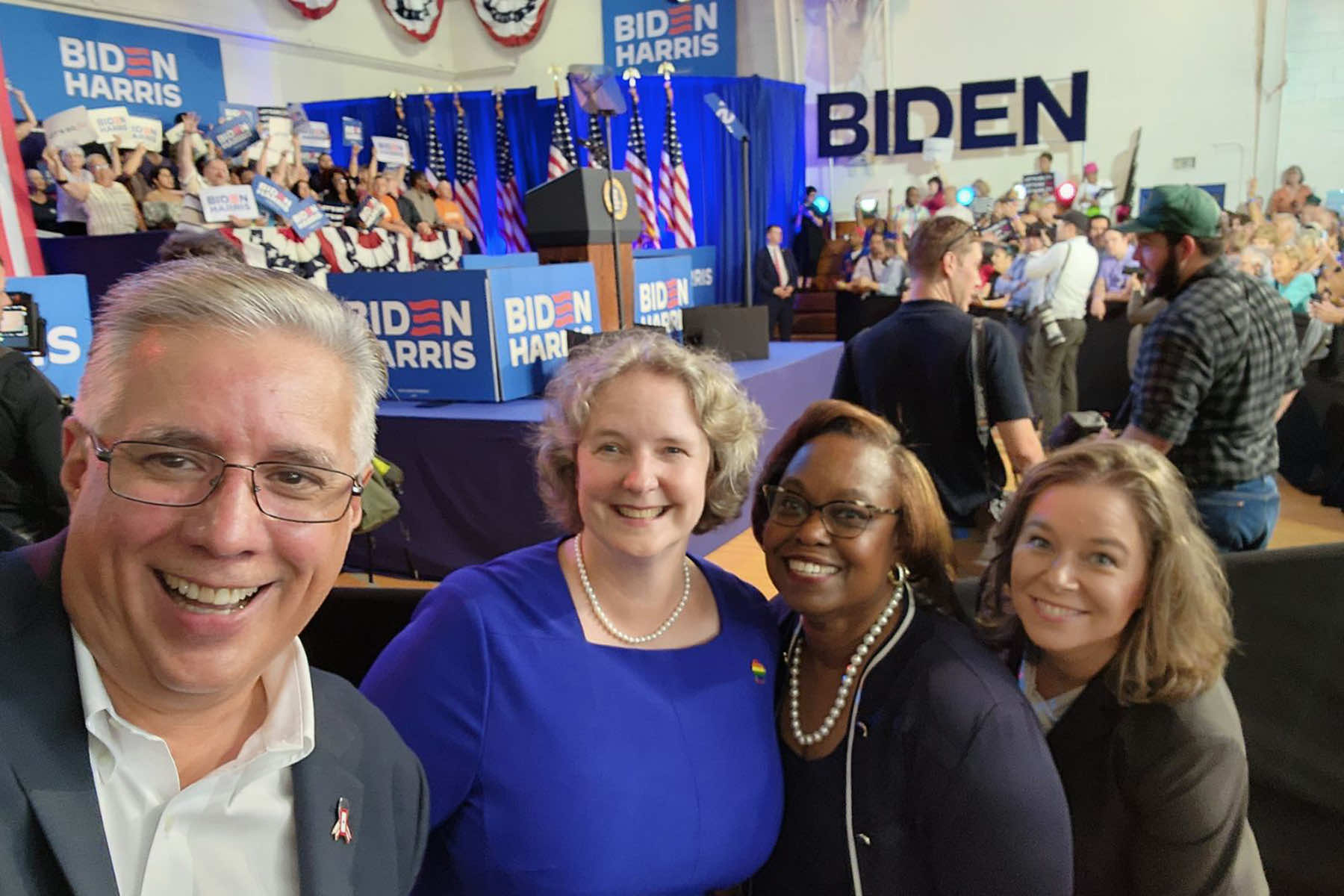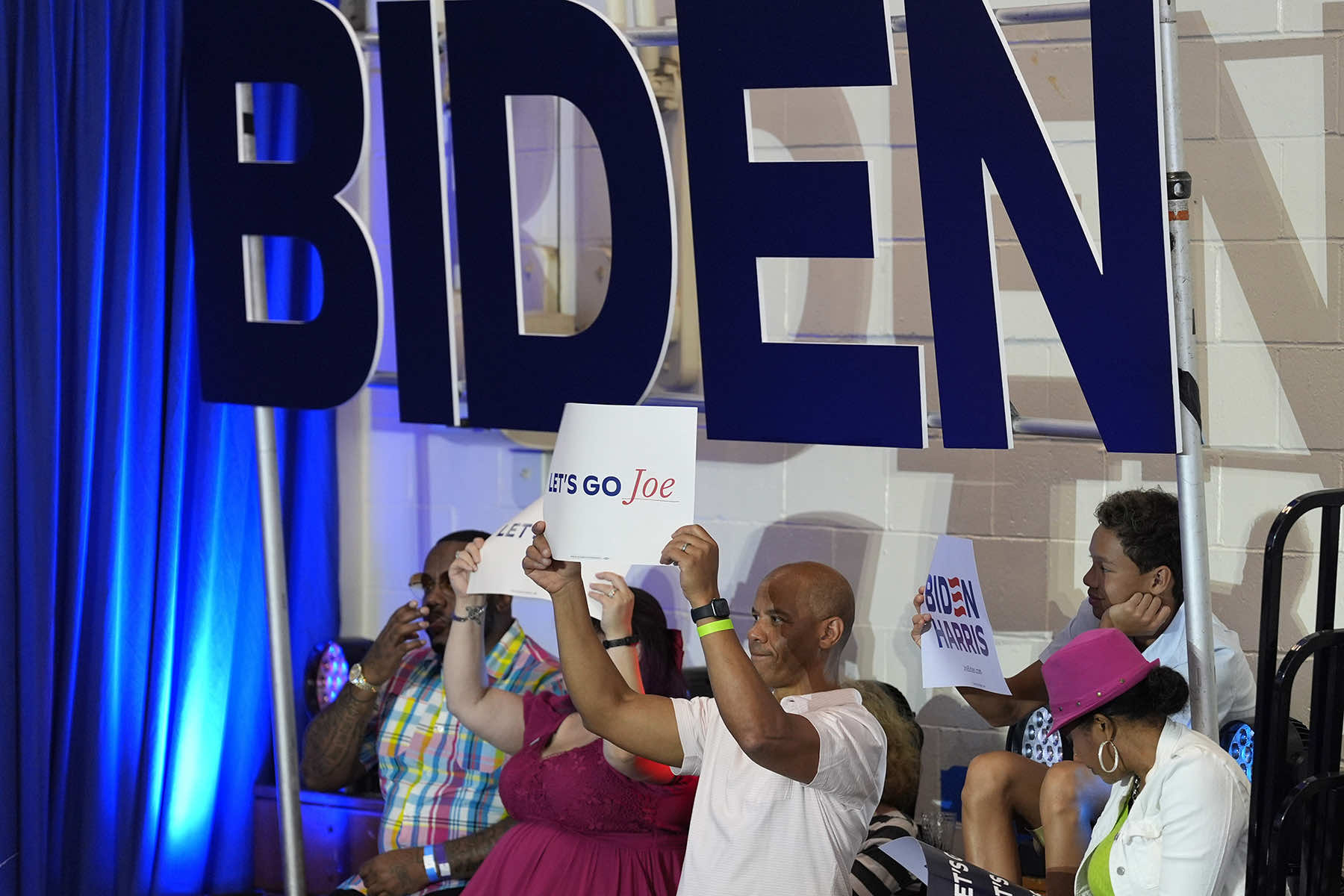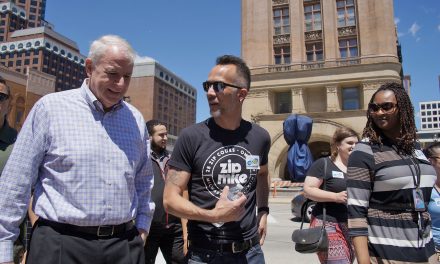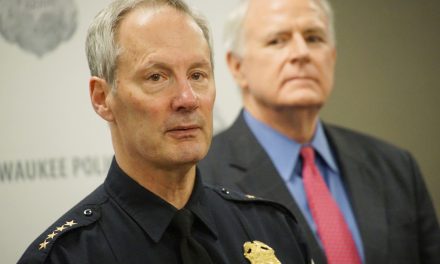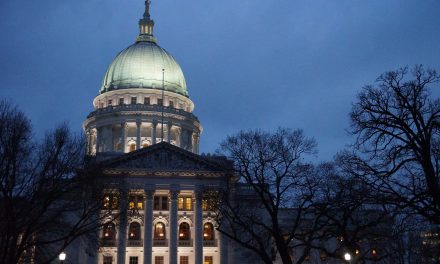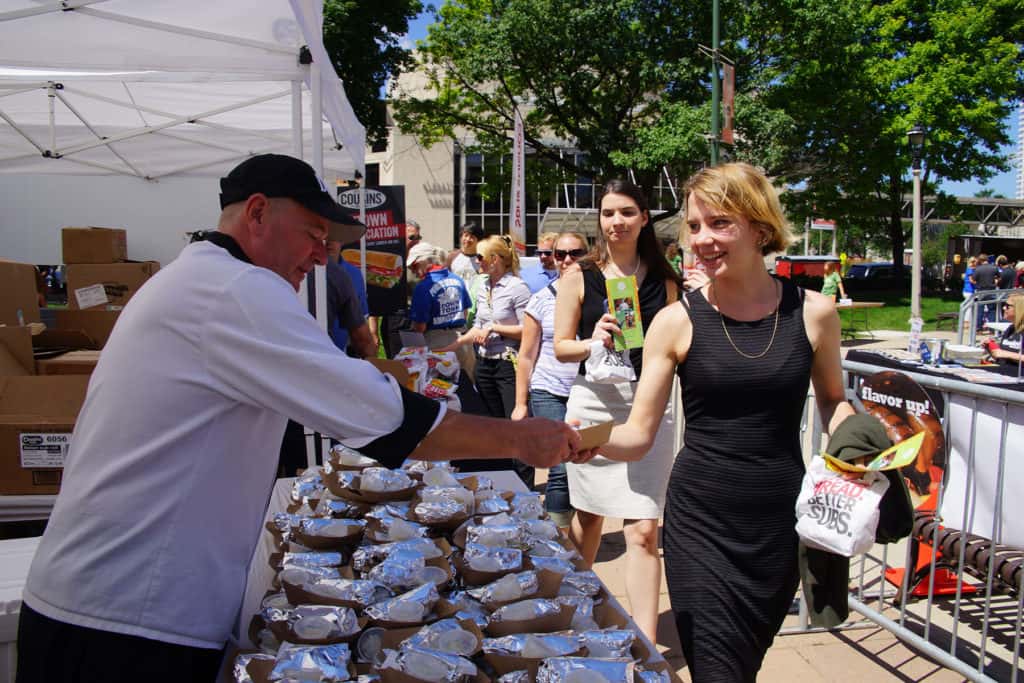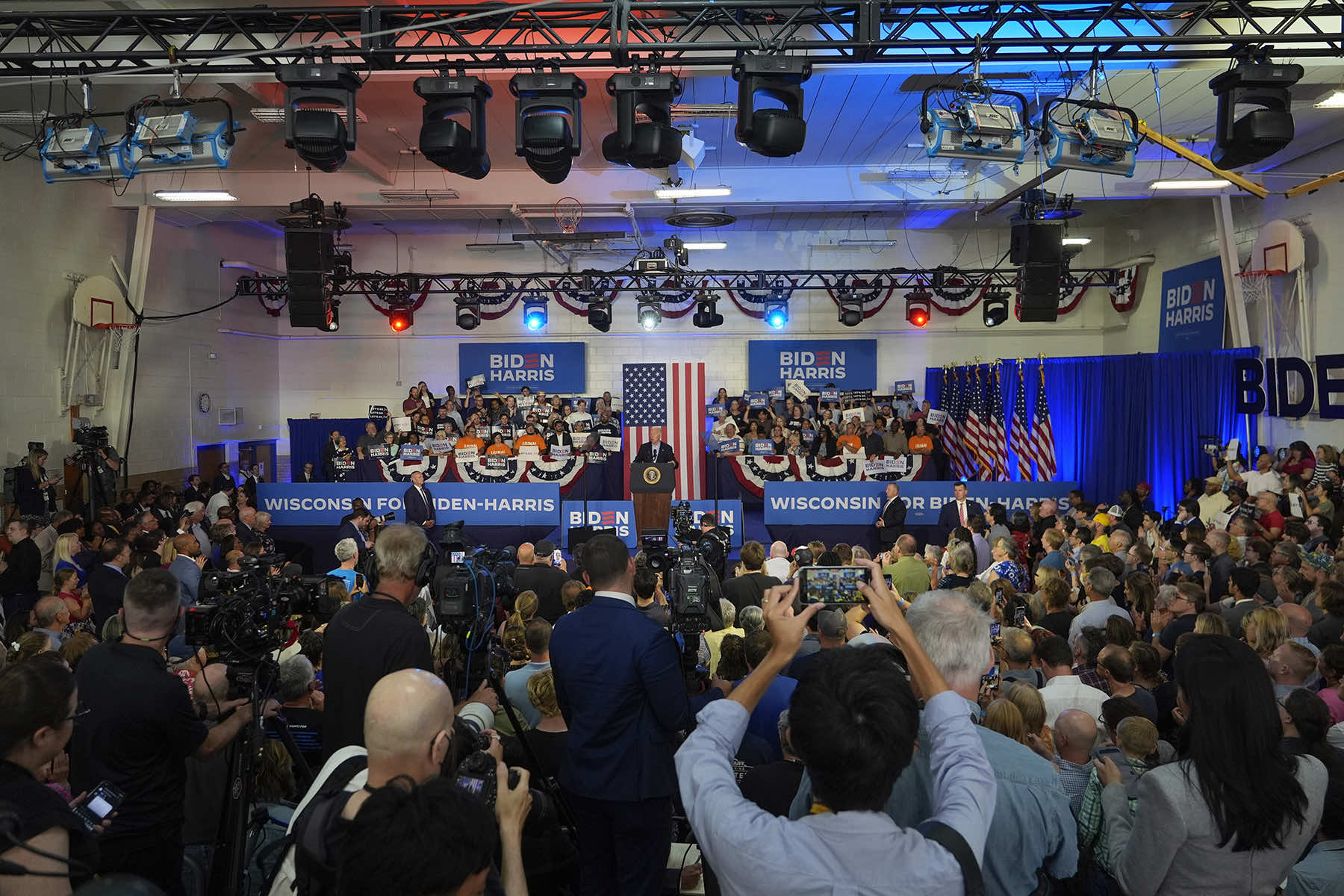
Like many Americans, I watched the Presidential Debate both shocked and saddened as I heard from both candidates.
For the first time in history, a current and former president were on the stage tasked with defining and debating their policy positions, defending their respective records, and sharing their visions for the future of our country.
I watched Joe Biden struggle to focus and express his positions. I saw and heard Donald Trump making false claims after false claims. While Biden appeared not to have the ability to clearly articulate his thoughts, it was clear Trump did, and that his strategy was to create as much anger and division as he could during the 90-minute debate.
Immediately following the event, commentators began asking if Biden was fit to serve as President for another four years, and only occasionally commented on Trump’s extremist statements.
One of the former President’s false and inflammatory claims on immigration policy was that President Joe Biden “is letting millions of people from jails, from prisons, from insane asylums, from mental institutions, drug dealers pour in.”
He made similar statements repeatedly throughout the debate. I turned to my wife after Trump made the statement and asked “I wonder how long it will be before we learn of another hate crime against a Hispanic.”
Since Trump first announced his candidacy for his first term, our nation has seen a significant increase in the number of hate crimes nationwide. In 2015 the U.S. Department of Justice reported 5,843 hate crimes. In 2022, the number was 11,643. The Justice Department admits the number of hate crimes is significantly underreported as victims are often fearful to come forward and report the crimes against them.
The day after the debate a 74-year-old man shot and wounded an entire Hispanic family in Crete, Nebraska. The victims of the attack were four children, including a three-year-old, and three adults. By God’s grace, they all survived the attack.
Per police reports, the shooter had previously told the family to “go back to your own country” and to “speak English,” common Trump talking points. When surrounded by police, the shooter took his own life. As the shooter is no longer alive no one can definitively link the statements in the debate to this attack, but the correlation between Donald Trump’s remarks and the number of hate crimes committed is clear.
Even more telling is that, often during these attacks, the perpetrators invoke the former President’s name and repeat his talking points in their remarks, in online comments, or in the case of the El Paso shooter – a manifesto.
A few days following the debate I was invited to attend a July 5 event with President Biden that would be taking place in Madison, Wisconsin.
It began with a phone call. There was going to be an event with the President, and I was told “I might” have a brief opportunity to speak with him. I accepted the invitation and began to ponder what would I say if I did have an opportunity to speak with the Commander-in-Chief of the United States.
As with most Americans, I had my questions as to his mental fitness, his ability to discuss policy, as well as to recollect past events and experiences.
Upon arriving at Sherman Middle School, the event venue, on the morning of July 5, I signed in and was ushered into a room with a small group of individuals from across Wisconsin. On one side of the room stood a wall of blue velvet pipe and drape, with a temporary hallway made of the same along the wall.
When the time came, I was introduced to the President of the United States. He welcomed me with his trademark smile and extended his hand and we exchanged pleasantries and posed for a photo.
I began our conversation by thanking him for his recent Executive Actions which provided a legal pathway to permanent status for immigrants brought to the United States as small children by their parents for no fault of their own, as well as for the immigrant spouses and children of United States Citizens.
He proceeded to tell me his reasoning for taking these actions. He ended his comments by saying it was the right and moral thing to do, strengthening families.
I then shared with him the appreciation that both my wife and I have for his strong support of the men and women in the U.S. Military. From making sure they are the best equipped and trained, to always ending every speaking engagement by invoking “God Bless our troops.”
Following my comment, he immediately looked down at my lapel and saw I was wearing a “Service Banner Pin” with a single star. He asked me “What branch?” I proudly told him our son served in the United States Air Force.
I then shared that a few years ago, he the President, actually had a stopover at an overseas base where my son was stationed at the time. He asked which one, and I told him. I then began to repeat a story my son had shared with me regarding his visit. As I am telling the story, the President begins to chuckle and smile. He then goes on to finish the story.
He then thanked me for our son’s service. Mindful of the limited time I had with him, I then extended my hand and said, “thank you” and began to shift my body as to walk away. However, I stopped when he continued to hold my hand. He placed his other hand on my elbow. With a look of true empathy and appreciation, he said, “I mean it, I want to thank you, your wife, and especially your son for his service. Without him and the others, we wouldn’t have any of this. We owe it all to them.”
Moved by his remarks and after a brief moment, I replied “Thank you Mr. President, and I want to thank you and Mrs. Biden for your son’s service and sacrifice.”
His son Beau Biden died of brain cancer several years after returning from his deployment to Iraq with the Army National Guard. During his tour, he was exposed to fumes and smoke from toxic burn pits which have been linked to cancer in U.S. service members.
It was an emotional, powerful, and a most unexpected moment. After one more earnest expression, he then released his grip and I walked away, proceeding to the auditorium for the public portion of the event.
While I only spoke with President Joe Biden for a handful of minutes, I left confident in his ability to discuss policy, to remember small and minor details from years back, and generally to trust his judgment.
And while I had answers to my questions, what I left most struck by was his humanity, his decency, and his love for our country. While I am not a physician, nor a member of the Democratic Party, it is not my place to say whether he should continue his campaign or cede it to another.
What I can say is that either way, he deserves our appreciation for his many accomplishments from record economic growth and employment, to the record number of small business startups, increased number of individuals covered by healthcare, the dramatic decrease in the number of children living in poverty, and so much more.
Most importantly, he deserves our respect for defending the Constitution and the rights of all, regardless of party, and for working to unite the country rather than dividing it.
After my long drive home, I shared what could only be considered a surreal experience with my wife.
Filled with the hope for the days that would follow, my phone rang later that evening. Another Hispanic family had been attacked right here in southeastern Wisconsin.
They were in need of assistance.





